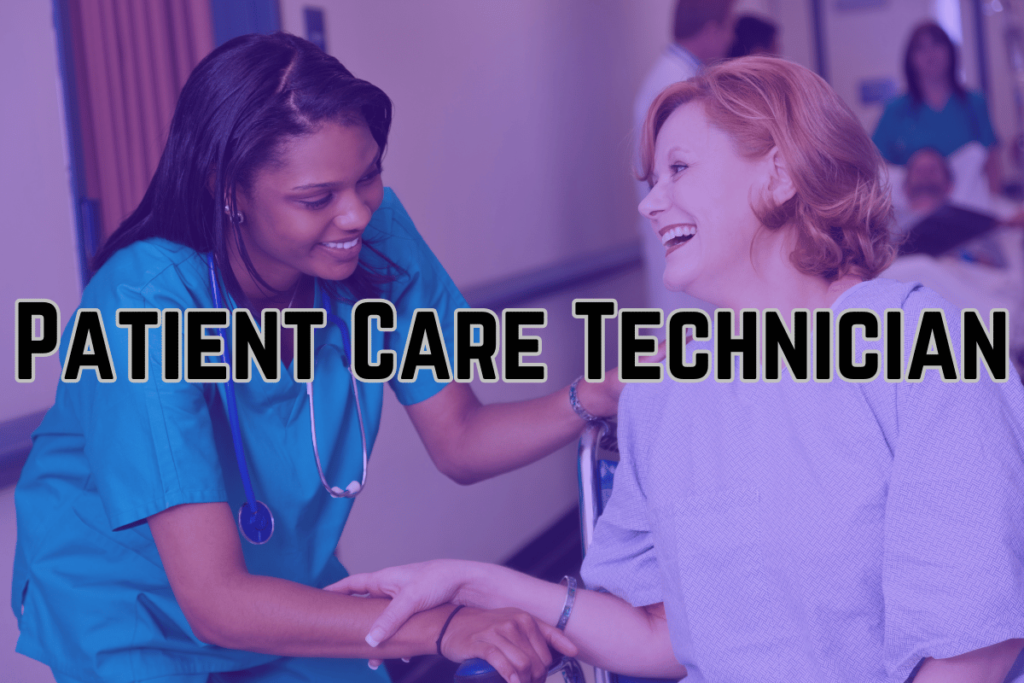Jobs for Premed Students
Premed students often seek out jobs that will provide them with valuable experience in the medical field while they complete their undergraduate studies. These jobs help students develop the skills and knowledge they need to be successful in medical school and beyond.
Read More Articles: What Is Post-Secondary Education: A Multifaceted Exploration
Here are a few of the most common jobs for premed students:
- Medical scribe: Medical scribes shadow physicians and document their interactions with patients. This job can provide students with a firsthand look at the day-to-day work of a physician and help them develop their medical terminology and knowledge.
- Certified nursing assistant (CNA): CNAs provide basic care to patients in a variety of settings, including hospitals, nursing homes, and assisted living facilities. This job can help students develop their patient care skills and learn about the different aspects of healthcare.
- Patient care technician (PCT): PCTs perform a variety of tasks to assist patients, such as taking vital signs, changing dressings, and collecting specimens. This job can help students develop their patient care skills and gain experience in a hospital setting.
- Medical receptionist: Medical receptionists greet patients, answer phones, and schedule appointments. This job can help students develop their communication and customer service skills.
- Pharmacy technician: Pharmacy technicians assist pharmacists in dispensing medications and providing patient education. This job can help students develop their knowledge of pharmacology and gain experience in a pharmacy setting.
- Medical laboratory assistant: Medical laboratory assistants perform a variety of tests on patient specimens, such as blood, urine, and tissue. This job can help students develop their laboratory skills and gain experience in a laboratory setting.
- Emergency medical technician (EMT): EMTs provide emergency medical care to patients in a variety of settings, such as ambulances and emergency rooms. This job can help students develop their patient care skills and gain experience in an emergency setting.
- Health insurance claims processor: Health insurance claims processors process health insurance claims and determine how much the insurance company will pay. This job can help students develop their knowledge of health insurance and gain experience in a healthcare setting.
- Medical transcriptionist: Medical transcriptionists transcribe medical dictation into written reports. This job can help students develop their medical terminology and knowledge.
- Clinical research assistant: Clinical research assistants assist with the design and implementation of clinical research studies. This job can help students develop their research skills and gain experience in a clinical setting.
These are just a few of the many jobs that are available to premed students. When choosing a job, it is important to consider your interests and career goals. Some jobs may provide more relevant experience than others, but all of them can help you develop the skills you need to be successful in medical school and beyond.
Here are some additional tips for finding a job as a premed student:
- Network with your professors, classmates, and other healthcare professionals.
- Attend career fairs and job fairs.
- Search for job openings online.
- Contact hospitals, clinics, and other healthcare organizations directly to inquire about job openings.
With a little effort, you can find a job that will help you gain the experience and skills you need to be successful in your premed studies and beyond.
Medical Scribe
Summary:
Medical scribes are responsible for shadowing physicians and documenting their interactions with patients. They play a vital role in the healthcare team by providing accurate and timely documentation, which can improve patient care and streamline workflow.
Responsibilities:
- Shadow physicians during patient encounters
- Document patient histories, physical exams, and treatment plans
- Enter data into electronic health records (EHRs)
- Prepare and maintain patient charts
- Assist physicians with research and administrative tasks
- Communicate with patients and families to obtain information and provide updates
Qualifications:
- High school diploma or equivalent
- Excellent communication and interpersonal skills
- Strong attention to detail and accuracy
- Proficient in medical terminology and anatomy
- Ability to work independently and as part of a team
- Experience with electronic health records (EHRs) preferred
Benefits of Working as a Medical Scribe:
- Gain valuable experience in the medical field
- Develop knowledge of medical terminology and procedures
- Improve communication and interpersonal skills
- Prepare for a career in healthcare, such as medicine, nursing, or physician assistant studies
- Earn a competitive salary and benefits package
Career Path:
Many medical scribes go on to pursue careers in healthcare. The experience and skills they gain as scribes can be valuable in medical school, nursing school, or other healthcare programs. Some medical scribes also choose to continue working as scribes after completing their education, as it can be a rewarding and challenging career.
How to Become a Medical Scribe:
There are several ways to become a medical scribe. Some hospitals and clinics offer on-the-job training programs for aspiring scribes. There are also a number of private companies that offer medical scribe training and placement services.
Salary:
The salary for medical scribes can vary depending on their experience, location, and employer. According to the American Association for Medical Transcription, the average salary for medical scribes in the United States is $20 per hour.
Job Outlook:
The job outlook for medical scribes is expected to be excellent in the coming years. As the healthcare industry continues to grow and adopt electronic health records, the demand for medical scribes is likely to increase.
Patient Care Technician
Summary:
Patient care technicians (PCTs) are responsible for providing basic care to patients in a variety of healthcare settings, including hospitals, nursing homes, and assisted living facilities. They work under the supervision of nurses and other healthcare professionals to provide a range of services, such as taking vital signs, changing dressings, and assisting with activities of daily living.
Responsibilities:
- Take vital signs, such as blood pressure, temperature, and pulse
- Change dressings and bandages
- Assist patients with activities of daily living, such as bathing, dressing, and eating
- Collect specimens for laboratory testing
- Transport patients within the healthcare facility
- Monitor patients for changes in condition and report any concerns to the nurse
- Provide emotional support and companionship to patients
- Maintain a clean and safe environment for patients
Qualifications:
- High school diploma or equivalent
- Certified nursing assistant (CNA) certification or equivalent experience
- Excellent communication and interpersonal skills
- Strong attention to detail and accuracy
- Ability to work independently and as part of a team
- Physical ability to lift and move patients
Benefits of Working as a Patient Care Technician:
- Gain valuable experience in the medical field
- Develop skills in patient care and handling
- Learn about different aspects of healthcare
- Prepare for a career in healthcare, such as nursing or physical therapy
- Earn a competitive salary and benefits package
Career Path:
Many patient care technicians go on to pursue careers in healthcare. The experience and skills they gain as PCTs can be valuable in nursing school, physical therapy school, or other healthcare programs. Some patient care technicians also choose to continue working as PCTs after completing their education, as it can be a rewarding and challenging career.
How to Become a Patient Care Technician:
There are several ways to become a patient care technician. Some hospitals and clinics offer on-the-job training programs for aspiring PCTs. There are also a number of community colleges and vocational schools that offer patient care technician training programs.
Salary:
The salary for patient care technicians can vary depending on their experience, location, and employer. According to the U.S. Bureau of Labor Statistics, the median annual salary for patient care technicians was $31,980 in May 2021.
Job Outlook:
The job outlook for patient care technicians is expected to be good in the coming years. As the population ages and the demand for healthcare services increases, the need for patient care technicians is likely to grow.
Medical Receptionist
Summary
:
Medical receptionists are the first point of contact for patients in a healthcare setting. They are responsible for greeting patients, answering phones, scheduling appointments, and maintaining patient records. Medical receptionists play a vital role in ensuring that patients have a positive experience and that the office runs smoothly.
Responsibilities:
- Greet patients and visitors
- Answer phones and direct calls to the appropriate staff member
- Schedule appointments and maintain patient records
- Process insurance claims and payments
- Handle correspondence and other administrative tasks
- Maintain a clean and organized reception area
Qualifications:
- High school diploma or equivalent
- Excellent communication and interpersonal skills
- Strong organizational and time management skills
- Proficient in Microsoft Office Suite
- Experience in a medical setting is preferred
Benefits of Working as a Medical Receptionist:
- Gain valuable experience in the medical field
- Develop strong customer service skills
- Learn about different aspects of healthcare
- Prepare for a career in healthcare administration or other healthcare-related fields
- Earn a competitive salary and benefits package
Career Path:
Many medical receptionists go on to pursue careers in healthcare administration or other healthcare-related fields. The experience and skills they gain as medical receptionists can be valuable in these roles. Some medical receptionists also choose to continue working as medical receptionists, as it can be a rewarding and challenging career.
How to Become a Medical Receptionist:
There are several ways to become a medical receptionist. Some hospitals and clinics offer on-the-job training programs for aspiring medical receptionists. There are also a number of community colleges and vocational schools that offer medical receptionist training programs.
Salary:
The salary for medical receptionists can vary depending on their experience, location, and employer. According to the U.S. Bureau of Labor Statistics, the median annual salary for medical receptionists was $36,460 in May 2021.
Job Outlook:
The job outlook for medical receptionists is expected to be good in the coming years. As the healthcare industry continues to grow, the demand for medical receptionists is likely to increase.
Pharmacy Technician
Summary:
Pharmacy technicians assist pharmacists in dispensing medications and providing patient education. They work under the supervision of a pharmacist to perform a variety of tasks, such as filling prescriptions, processing insurance claims, and maintaining inventory. Pharmacy technicians play a vital role in ensuring that patients receive the medications they need in a safe and timely manner.
Responsibilities:
- Fill prescriptions according to physician orders
- Process insurance claims and payments
- Maintain inventory and order new medications
- Provide patient education on medications
- Assist pharmacists with other tasks, such as preparing IV medications and compounding medications
Qualifications:
- High school diploma or equivalent
- Pharmacy technician certification or equivalent experience
- Excellent communication and interpersonal skills
- Strong attention to detail and accuracy
- Ability to work independently and as part of a team
Benefits of Working as a Pharmacy Technician:
- Gain valuable experience in the pharmacy field
- Develop knowledge of pharmacology and medications
- Learn about different aspects of healthcare
- Prepare for a career as a pharmacist or other healthcare-related field
- Earn a competitive salary and benefits package
Career Path:
Many pharmacy technicians go on to pursue careers as pharmacists or other healthcare-related professionals. The experience and skills they gain as pharmacy technicians can be valuable in these roles. Some pharmacy technicians also choose to continue working as pharmacy technicians, as it can be a rewarding and challenging career.
How to Become a Pharmacy Technician:
There are several ways to become a pharmacy technician. Some pharmacies offer on-the-job training programs for aspiring pharmacy technicians. There are also a number of community colleges and vocational schools that offer pharmacy technician training programs.
Salary:
The salary for pharmacy technicians can vary depending on their experience, location, and employer. According to the U.S. Bureau of Labor Statistics, the median annual salary for pharmacy technicians was $34,350 in May 2021.
Job Outlook:
The job outlook for pharmacy technicians is expected to be good in the coming years. As the population ages and the demand for healthcare services increases, the need for pharmacy technicians is likely to grow.
Clinical Research Assistant
Summary:
Clinical research assistants assist with the design and implementation of clinical research studies. They work under the supervision of a principal investigator to perform a variety of tasks, such as recruiting and screening participants, collecting data, and managing study records. Clinical research assistants play a vital role in ensuring that clinical research studies are conducted ethically and efficiently.
Responsibilities:
- Assist with the development and implementation of clinical research protocols
- Recruit and screen participants for clinical research studies
- Collect and manage study data
- Maintain study records and ensure compliance with regulatory requirements
- Assist with data analysis and reporting
- Prepare presentations and manuscripts for scientific conferences and publications
Qualifications:
- Bachelor’s degree in a science-related field, such as biology, chemistry, or nursing
- Excellent communication and interpersonal skills
- Strong organizational and time management skills
- Proficient in Microsoft Office Suite
- Experience with clinical research or data management preferred
Benefits of Working as a Clinical Research Assistant:
- Gain valuable experience in the clinical research field
- Develop knowledge of research methods and data analysis
- Learn about different aspects of healthcare
- Prepare for a career in clinical research or other healthcare-related fields
- Earn a competitive salary and benefits package
Career Path:
Many clinical research assistants go on to pursue careers as clinical research coordinators, clinical project managers, or other healthcare professionals. The experience and skills they gain as clinical research assistants can be valuable in these roles. Some clinical research assistants also choose to continue working as clinical research assistants, as it can be a rewarding and challenging career.
How to Become a Clinical Research Assistant:
There are several ways to become a clinical research assistant. Some hospitals and research institutions offer on-the-job training programs for aspiring clinical research assistants. There are also a number of universities and colleges that offer clinical research assistant training programs.
Salary:
The salary for clinical research assistants can vary depending on their experience, location, and employer. According to the U.S. Bureau of Labor Statistics, the median annual salary for clinical research assistants was $58,290 in May 2021.
Job Outlook:
The job outlook for clinical research assistants is expected to be good in the coming years. As the demand for new and innovative treatments continues to grow, the need for clinical research assistants will likely increase.
Health Educator
Summary:
Health educators develop and implement health education programs and materials. They work with individuals and groups to promote healthy behaviors and lifestyles. Health educators play a vital role in improving the health of communities and reducing the risk of chronic diseases.
Responsibilities:
Develop and implement health education programs and materials
Provide health education to individuals and groups
Evaluate the effectiveness of health education programs
Collaborate with other health professionals to promote healthy behaviors
Advocate for policies that support healthy lifestyles
Qualifications:
Bachelor’s degree in health education, public health, or a related field
Excellent communication and interpersonal skills
Strong organizational and time management skills
Proficient in Microsoft Office Suite
Experience with health education or community outreach is preferred
Benefits of Working as a Health Educator:
Make a difference in the lives of others by promoting healthy behaviors
Develop knowledge of health education theories and methods
Learn about different aspects of healthcare
Prepare for a career in health education or other healthcare-related fields.
Earn a competitive salary and benefits package.
Career Path:
Many health educators go on to pursue careers as health promotion specialists, community health educators, or other healthcare professionals. The experience and skills they gain as health educators can be valuable in these roles. Some health educators also choose to continue working as health educators, as it can be a rewarding and challenging career.
How to Become a Health Educator:
There are several ways to become a health educator. Some health departments and community organizations offer on-the-job training programs for aspiring health educators. There are also a number of universities and colleges that offer health education training programs.
Salary:
The salary for health educators can vary depending on their experience, location, and employer. According to the U.S. Bureau of Labor Statistics, the median annual salary for health educators was $57,130 in May 2021.
Job Outlook:
The job outlook for health educators is expected to be good in the coming years. As the demand for health education and promotion services continues to grow, the need for health educators will likely increase.
Conclusion
Working in the healthcare field can be a rewarding and challenging career. There are many different jobs available in healthcare, from clinical research assistant to health educator to social work aide. Each job has its own unique set of responsibilities and qualifications, but all of them play a vital role in providing quality healthcare to patients.
If you are interested in a career in healthcare, there are many resources available to help you get started. You can contact your local hospital or health clinic to inquire about job openings. You can also search for healthcare jobs online or through professional organizations.
Once you have found a job that you are interested in, you will need to apply and interview for the position. Be sure to highlight your skills and experience in your resume and cover letter. It would help if you also were prepared to answer questions about your motivation for working in healthcare and your goals for your career.
With hard work and dedication, you can achieve your goal of working in healthcare and making a difference in the lives of others.


